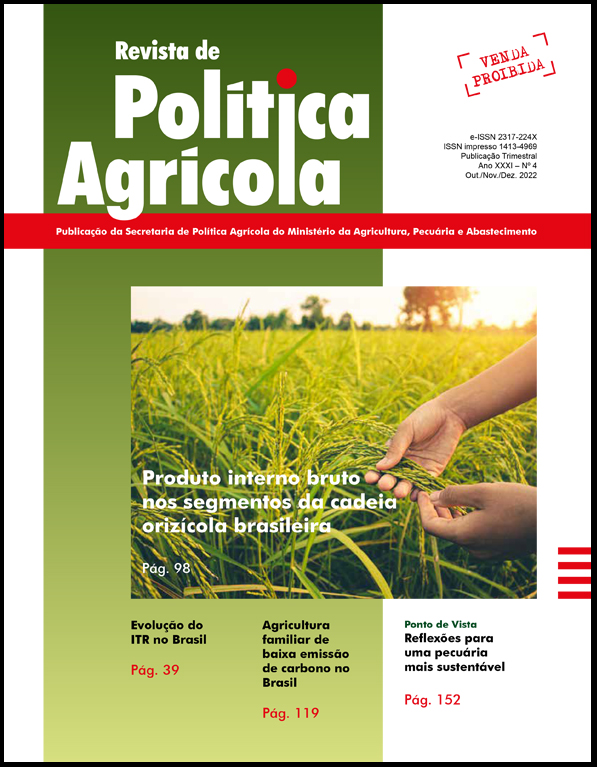Family farming with low-carbon emission in Brazil
Keywords:
adaptation, agriculture, climate change, ABC Plan, technologiesAbstract
Climate change has become a reality for society, with relevant implications for development. Agriculture is dependent on weather conditions. Despite the technological advances, the relative climate stability is essential for the agricultural production. In 2009, Brazil created the sectorial plan for mitigation and adaptation to climate change for the consolidation of a low-carbon economy in agriculture (Plano Setorial de Mitigação e de Adaptação às Mudanças Climáticas para Consolidação de uma Economia de Baixa Emissão de Carbono na Agricultura – Plano ABC), which was carried out from 2010 to 2020. With the end of the cycle, the Ministry of Agriculture, Livestock and Supply (MAPA) developed the ABC+ plan, to be carried out from 2020 to 2030. The main objective of this work was to emphasize the importance and discuss the construction of a low-carbon family agriculture in Brazil. This country has more than 3.9 million family farming establishments, occupying 80.9 million hectares, in addition to generating occupation for more than 10 million people. This study uses data and secondary information collected from the literature and institutional sources. The analysis was performed based on the multidimensional approach. The results show that, despite the inclusion of family farming in ABC+, many challenges still persist, such as how to consider the heterogeneity of producers and the different regional family farming systems, and how to offer a more appropriate approach to the different groups of producers. In this sense, the results make it possible to group the challenges for low-carbon family farming for the following aspects: knowledge and dissemination; access to markets; risk, uncertainties, and rural insurance; infrastructure, innovation, and financing; mitigation and adaptation to climate change.Downloads
Published
2022-12-22
How to Cite
Garcia, J. R., Vahdat, V. S., Harfuch, L., Antoniazzi, L. B., & Buainain, A. M. (2022). Family farming with low-carbon emission in Brazil. Revista De Política Agrícola, 31(4), 119. Retrieved from https://rpa.sede.embrapa.br/RPA/article/view/1791
Issue
Section
Artigos Científicos


